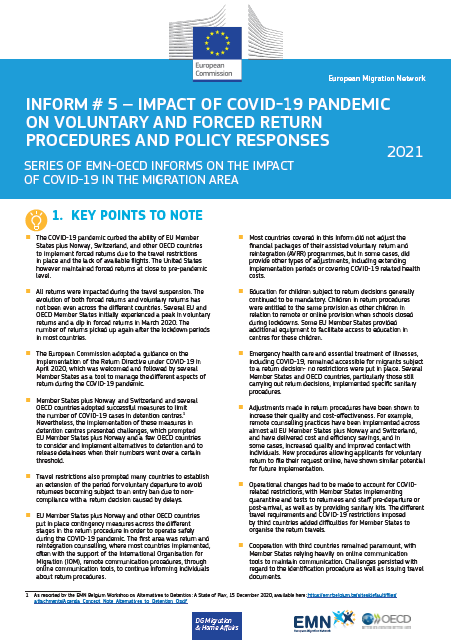The COVID-19 crisis and the measures taken by EU and OECD countries to stop its spread are impacting migration directly and indirectly. As was the case in other areas of migration, COVID-19 measures affected the implementation of return procedures. Health and safety conditions in pre-return detention centres had to be adapted to ensure the protection of detainees during
the pandemic, and migrants who had no legal basis to remain were only able to return to their country of origin if travel was permitted and flights were available.
The COVID-19 pandemic curbed the ability of EU Member States plus Norway, Switzerland, and other OECD countries to implement forced returns due to the travel restrictions in place and the lack of available flights. The United States however maintained forced returns at close to pre-pandemic level.
All returns were impacted during the travel suspension. The evolution of both forced returns and voluntary returns has not been even across the different countries. Several EU and OECD Member States initially experienced a peak in voluntary returns and a dip in forced returns in March 2020. The number of returns picked up again after the lockdown periods in most countries.
This joint EMN – OECD Inform reports on voluntary and forced return procedures and policy responses in EU and OECD Member States between January and July 2020. It is based on information collected by the EMN Return Expert Group (REG) practitioners through the EMN Ad-Hoc Query (AHQ) on responses to COVID-19 in the return procedures area.3 Information provided by OECD was collected via the OECD Working Party on Migration, the OECD Expert Group on Migration, and for the OECD policy brief on managing international migration under COVID-19 in OECD countries.
This Inform is part of a series of Informs addressing further topics exploring the impact of COVID-19 in the migration area. These include;


